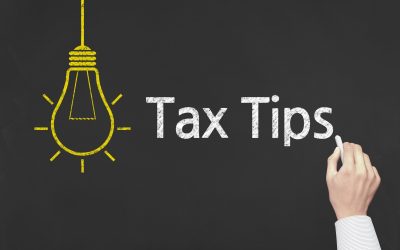
The revised tax day date, July 15th, is upon us, and there are several important things to note, whether you’ve filed already or not. While our tax bill might only be at the forefront of our minds during one time of the year, the reality is that financial moves throughout the year can impact your tax bill in the short-term and for years to come. There could be opportunities to take advantage of that would help minimize your tax burden now and in the long-term. Here’s what to know now that tax day is finally arriving.
Suspended RMDs and a New Rollover Option
The CARES Act waived RMDs for 2020, and now there is relief for those who took an RMD before the CARES Act was passed. If you took an RMD for 2020 from a 401(k), 403(b), or IRA, you can now roll the funds back into a retirement account. The normal 60-day rollover period for RMDs has been extended to August 31st, 2020.[1] This also applies to anyone who turned age 70 ½ in 2019 and would have had to take their first RMD by April 1st, 2020. The new rule also applies to inherited retirement accounts, and beneficiaries have until August 31st, 2020 to put the money back and not pay tax on the amount. If you’re not taking RMDs yet, consider how they could affect your tax burden in the future.
Applying for a Tax Extension
Those who cannot file their taxes by July 15th can apply for an extension. The extension provides six additional months from the original deadline of April 15th, not the extended July 15th date. And, the tax payment deadline cannot be extended. This means that the tax payment deadline is still July 15th, but the filing deadline extension is October 15th. Those who pay taxes quarterly must pay taxes for the first two quarters of 2020 by July 15th.[2]
Opportunities for Tax Minimization
The CARES Act offers opportunities for tax minimization in 2020 and beyond. Retirees who would normally need to take Required Minimum Distributions from their retirement accounts now have the option to forego taking distributions for 2020. If you don’t need the income from an RMD, you can take advantage of this opportunity. By keeping your income for 2020 low, you can potentially reduce your tax burden or possibly make a Roth IRA conversion. If you are planning on withdrawing from your retirement accounts, keep in mind that you can take coronavirus-related distribution up to $100,000 from a retirement account(s) without incurring an early withdrawal penalty of 10%.[3]
Taxes can be one of our biggest expenses, even when you’ve stopped earning a paycheck. Don’t forget about tax minimization strategies after you’ve filed – what you do now could affect your tax burden later on in retirement. A financial advisor can help you create a long-term tax minimization strategy as part of a comprehensive retirement plan. Contact us to find out how we can create a plan to fit your needs.
[1] https://www.irs.gov/newsroom/irs-announces-rollover-relief-for-required-minimum-distributions
[2] https://www.forbes.com/sites/advisor/2020/06/24/dont-count-on-a-second-extension-to-the-tax-filing-deadline-do-this-instead
[3] https://www.irs.gov/newsroom/coronavirus-related-relief-for-retirement-plans-and-iras-questions-and-answers



